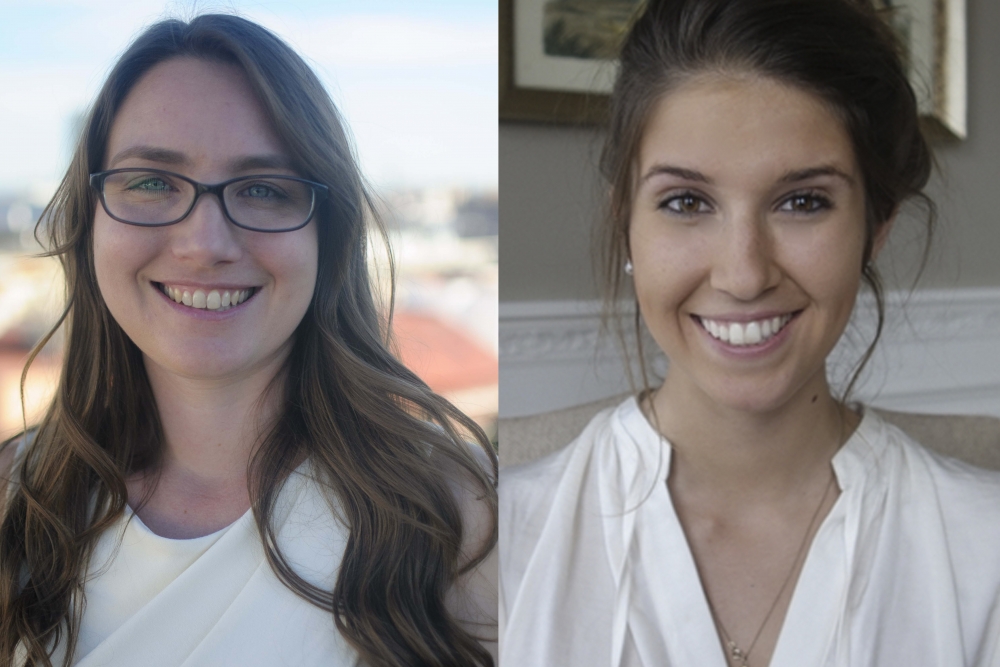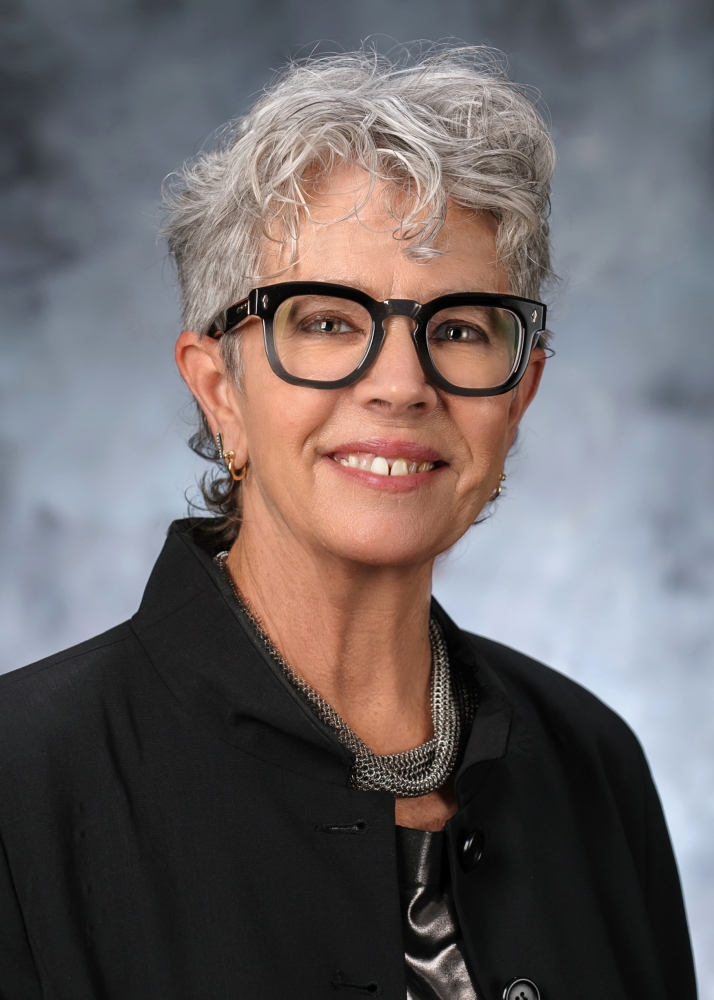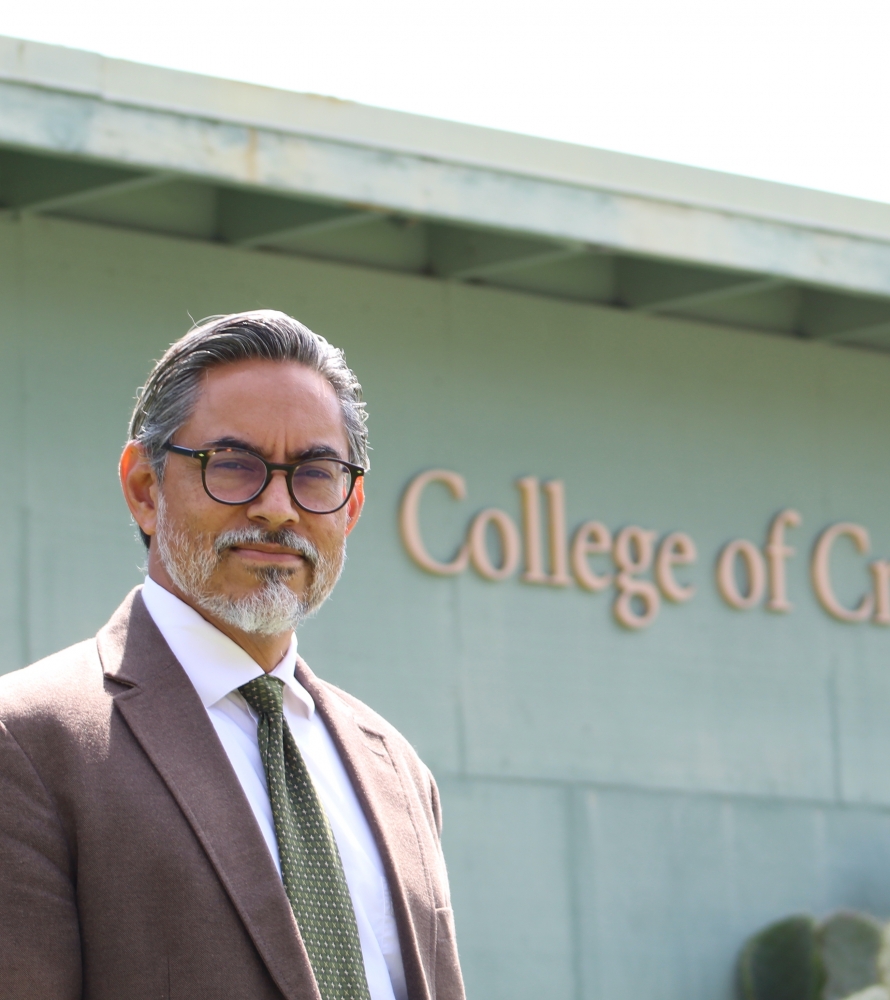
A Winning Proposal


Taking on a topic that is a stark reality for some students, UC Santa Barbara in the next academic year will launch a course on food justice. And in fact it’s students who conceived it.
Winners of the inaugural Crossroads 2.0 course proposal competition put on by the Graduate Division and the College of Creative Studies, graduate students MacKenzie Wade (anthropology) and Mariah Miller (global studies) will see their proposal, “Alternative Foods, Alternative Economies: Creative Collaborations to Reimagine the Food System,” offered in the College of Creative Studies (CCS) in the 2022 winter quarter. They will also teach the course.
“Our topic synthesizes our dissertation research in a way that makes it accessible and engaging to undergraduates and makes a valuable contribution to UCSB’s course offerings,” said Miller. “The readings on and discussions of food systems will give undergraduates a better understanding of a challenge that they or many of their classmates are facing and, unlike other courses offered, it will be a chance to do this in an interdisciplinary setting important for teasing out aspects of complex problems. Studying social organizations, how they work and what can and cannot be accomplished with them gives students a chance to prepare for, process and contextualize experiences interning or volunteering.”
Their proposal was selected from 21 entries in this first-ever contest. Following in the tradition of the original Crossroads program, which brought together faculty and graduate students in an interdisciplinary research and teaching project, Crossroads 2.0 offers pairs of graduate students from different disciplines the opportunity to develop and teach a course in the College of Creative Studies.
“This collaboration with the College of Creative Studies is an exciting new venture for the Graduate Division and fits beautifully with our goals of supporting students to think across disciplines and mobilize their knowledge in the interests of a more just society,” said Interim Graduate Dean Leila J. Rupp. “We were so impressed by the quality of the submissions, and wish we could support more than one.”
College of Creative Studies Dean Gerardo Aldana has been a key campus partner in the relaunch of Crossroads. “CCS has since its inception focused on providing incredibly curious and motivated undergraduates the opportunity to excel within their disciplines,” he said. “Our collaboration with the Graduate Division is intended to make space for these passionate minds to address complex issues that also cross disciplinary boundaries. For this program, we’ve been inspired in part by our Transdisciplinary Workshop Series — a platform that’s been drawn upon informally in CCS for years now. With Crossroads, we’re able to move these experiences into the curricular level to raise awareness of and engagement with social and environmental justice issues.”
Wade and Miller’s food justice-themed proposal was chosen from a strong field of submissions that ranged in topics from wildfires to climate change to sex work, to global queer identities, to prison abolitionism. The call for proposals specified that courses focus on a social justice or environmental justice theme and offer students opportunities to discover how their different disciplinary knowledge can come together in generative ways.
“The proposals were all powerful and speak so highly of our graduate students here at UC Santa Barbara,” said Aldana. “The specific proposal from Wade and Miller not only takes on critical issues of food security and sustainability justice, but explicitly takes advantage of CCS as a pedagogical laboratory — a feature our faculty have understood to be key to the college’s mission.”
Graduate students interested in Crossroads 2.0 were encouraged to enroll in a spring 2021 GRAD 210 class (College and University Teaching: From Theory to Practice), taught by Lisa Berry and Josh Kuntzman, to develop their goals for the proposed interdisciplinary course.
Miller wanted to work with Wade due to her research on edible insects, which she described as “timely, deeply relevant and just quirky enough to show that she really thinks outside the box, which is key for addressing global challenges like those presented by the food system.” Wade is currently conducting research on promoting edible insects as a cultural project against dominant Euro-American food norms in the Department of Anthropology, and has engaged with other students across campus on topics of environmental sustainability and food system equity.
“When Mariah approached me about combining our expertise on social enterprise and food, the vision for the course was pretty clear,” she said. “We want to give students the opportunity to explore their ideas for making change as part of interdisciplinary teams. They will learn how to communicate their disciplinary approaches, work constructively within a diverse group and imagine their own social enterprise with a critical lens. I wanted to help craft a course that would have been helpful for me as an undergraduate student with big ideas about making change, but uncertainty about possibilities after graduation. Mariah and I have both worked outside academia and will be bringing in diverse panels to help guide students through the course, and give advice on interdisciplinary teamwork.”
Both proposal co-authors also expressed a deep concern for a problem that hits close to home for many students at UCSB. “On a campus where so many students are food insecure, I believe that we all have a responsibility to consider how our research could be applied to address this particular social and environmental injustice,” said Miller. “Combining my research on social enterprises with Kenzie’s resulted in an undergraduate course that grounds the topic in a wider, systemic context of globalization, explores real organizations addressing aspects of food system injustice and supports students in developing their own creative, realistic projects. I have already learned a lot from writing the proposal with Kenzie and look forward to further research coming out of our course.”
Wade and Miller each will receive a stipend of $5,000 this summer to work on the course, and another stipend of $5,000 in the fall to finalize their syllabus while holding a teaching assistant or graduate student researcher position in their respective departments. They will then receive associate positions to teach their course during winter 2022.
“Through the Crossroads program, my goal is to give students the creative space to critically engage in food systems issues and potential solutions,” said Wade. “I have already learned so much from the undergraduate students at UCSB. They care deeply about these issues and many of them are already involved in fantastic social/environmental justice initiatives. I hope this course will help supplement what they have learned in other classes, build on their interests and efforts and introduce them to avenues open to them after graduation. In our preparation stage, Mariah and I will talk to student groups and related faculty members about what they would hope to see in the course and how it may best fit within current curriculum and student-led initiatives.”
Miller also hopes the program will help her develop skills to meet her own career goal of teaching at the university level. “Crossroads 2.0 is a unique opportunity for Ph.D. students to engage in an interdisciplinary project, develop and teach a course with mentorship and generous resources and learn by teaching,” she said. “These activities are all key parts of an academic career that are usually left out of the training for Ph.D. students. Academic research is often conducted in interdisciplinary teams, but almost all work as a Ph.D. student is conducted alone, especially in the social sciences. Most professors design and teach courses, but few Ph.D. students get the opportunity to teach a course at all, let alone one that brings their own research into the classroom. I believe that participating in the program will be very rewarding personally and professionally and will make me much better prepared for the academic job market.”
Wade aims to augment her graduate school experience and research work through mentorship and discussions with undergraduates in the new Crossroads course. “In my own work, my research relies heavily on community discussions about food issues through the topic of edible insects,” she said. “Conversations with my students have been essential in helping me shape ideas and formulate questions about the future of food so I am excited to continue thinking with and learning from students in this new Crossroads course. I am also excited for the opportunity to grow as an undergraduate mentor and to develop a curriculum that will center on student experiences and interests.”



